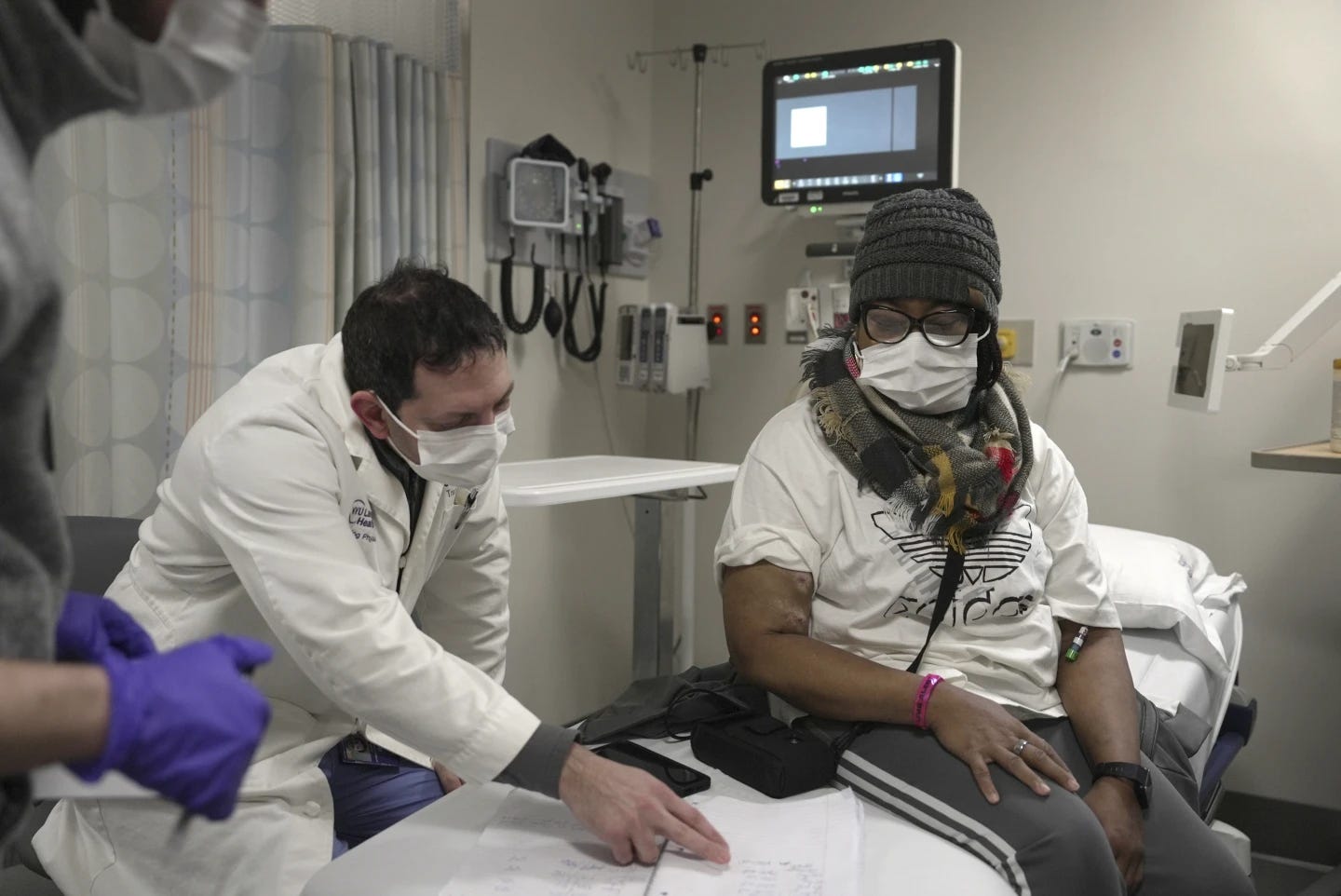Alabama Woman Becomes Longest Living Recipient of Pig Organ Transplant, Surpassing Two Months of Health
Towana Looney, an Alabama woman, has made history by surpassing two months with a functioning pig kidney transplant, setting a new milestone as the longest-living recipient of such a transplant. Looney, who received the groundbreaking transplant 61 days ago, is thriving, full of energy, and continuing her recovery with vigor.
“I feel like superwoman,” Looney said with a laugh, sharing how she has been outpacing her family members during long walks in New York City as part of her recovery process. “It’s a new lease on life.”
Her remarkable recovery offers hope in the ongoing effort to make animal-to-human organ transplants a viable solution to the severe organ shortage crisis. Looney is currently the only person in the world living with a functional pig organ, following the transplant of a gene-edited pig kidney. She joins just four other Americans who have received experimental pig organ transplants, including two hearts and two kidneys, though none have survived more than two months after the procedure.
“If you saw her walking down the street, you wouldn’t know she’s the only person in the world with a functioning pig organ inside her,” said Dr. Robert Montgomery, who led Looney’s transplant at NYU Langone Health. “Her kidney function is absolutely normal.”
Doctors are optimistic about Looney’s future and are hopeful that her kidney will continue to function well. She is currently living in New York for ongoing post-transplant checkups, and doctors anticipate she’ll return home to Gadsden, Alabama, in the next month.
Pig organ transplants are part of a broader scientific effort to address the critical shortage of human organs available for transplant. With over 100,000 people waiting for organ donations in the U.S., many of whom need a kidney, researchers are genetically modifying pigs to make their organs more compatible with humans. This experimental transplant has so far been conducted under "compassionate use" cases approved by the Food and Drug Administration (FDA), a measure that allows for transplants in special circumstances when patients have no other options.
Dr. Montgomery and other experts are working to gather data for the first formal studies of xenotransplantation, which are expected to begin later this year. United Therapeutics, which supplied Looney’s kidney, recently submitted a request to the FDA to start a formal clinical trial.
Looney’s success offers a valuable learning opportunity for researchers, particularly those working in the field of xenotransplantation. “Her experience is incredibly precious,” said Dr. Tatsuo Kawai of Massachusetts General Hospital, who led the world’s first pig kidney transplant in 2023. Kawai noted that Looney was in better health than prior patients, which makes her progress particularly important for future experiments.
Looney, 53, had previously donated a kidney to her mother in 1999 but developed kidney failure due to complications from pregnancy, leaving her reliant on dialysis for eight years. She eventually became a candidate for the pig organ transplant, despite being “highly sensitized” with antibodies that could potentially reject a human organ.
Doctors closely monitored Looney’s recovery, tracking her blood tests and other indicators. After three weeks, they detected early signs of rejection, which they were able to treat successfully. Since then, there have been no further signs of rejection. Looney’s case has inspired others who have reached out to her, seeking advice on whether to pursue pig kidney transplants themselves.
“I love talking to people, I love helping others,” Looney shared. “I want to be an educational resource for scientists and for people who are waiting for transplants.”
While there’s no way to predict how long Looney’s transplant will continue to function, she remains hopeful and determined. If the kidney fails, she could return to dialysis, but for now, she continues to serve as a beacon of hope for others waiting for a life-saving organ.
“The truth is, we don’t know what the next hurdles will be,” Dr. Montgomery said. “But we’re keeping a close eye on her progress, and we’re optimistic.”


